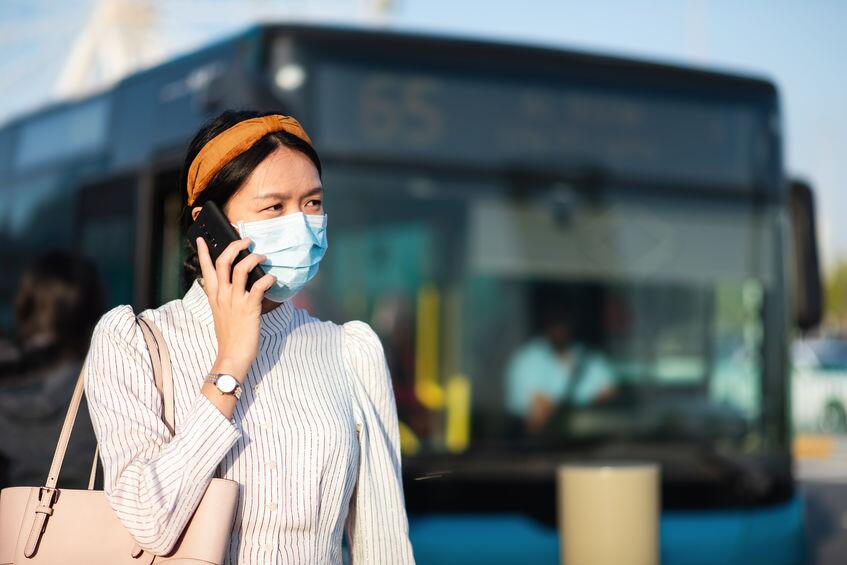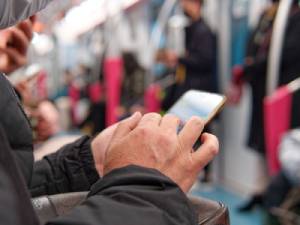Blog: Smartphones to Track and Trace Covid-19
Article By : John Walko

The U.K. is in discussions with mobile phone operators about accessing subscribers’ location data to ensure, and if necessary, enforce social-distancing guidelines.
The threat of Big Brother watching you is always a danger, particularly so in unprecedented times. So perhaps we should not be surprised that in the literary home of Big Brother here in the UK, the government has started discussions with mobile phone operators about gaining access to subscribers’ location data in an attempt to ensure, and if necessary enforce, social-distancing guidelines and thus limit the spread of the coronavirus.
The move is part of an effort to urge technology companies to provide relevant resources to contain the spread of Covid-19.
Several other countries worldwide, notably Israel, Taiwan, South Korea and Italy are also known to have instigated similar efforts.
A spokesman for BT said technologists are still ‘exploring possibilities’ in relation to the use of mobile data and how it could be used to help the medical authorities in the fight against the pandemic.
The operators certainly have the potential to build models that could help to predict broadly how the virus might move.
As well as assessing the effectiveness of social distancing, mobile data could also be used to track the movements of asymptomatic carriers of the disease. This, it has been suggested, may help the authorities to be more precise in identifying, and thus testing, those suspected of already having been exposed to Covid-19.

But BT insisted such an approach would “in no way be able to identify or map individuals, and operates within strict privacy guidelines.”
The idea, it seems, is to compile data in an anonymous aggregated form that could then be used to map the spread of the infection. But the fear is that if the information is used indiscriminately, it could record subscribers’ daily whereabouts.
Thus, not surprisingly, privacy campaigners were quick to point out that handing over any personally identifying data in large quantities would represent crossing a line that may be hard to step back from once the situation returns to normality.
Taiwan, which has won global praise for its effective action against the virus, has already rolled out what is described as an ‘electronic fence’ that uses location tracking from smartphones to ascertain whether people are fully complying with quarantine protocols. Reports suggest police are informed immediately if people in lockdown leave their home and are immediately acted upon.
But politicians there maintain these are exceptional times that require unconventional means.
China has also been relatively successful in managing to integrate mobile technology for epidemic control.
Perhaps the most draconian approach has been the one deployed by Israel, which uses techniques similar to that used in counter-terrorism. The country’s security agencies are expected to be involved in tracking and monitoring the mobile phones of people suspected of being exposed to the virus.
The country’s Prime Minister, Benjamin Netanyahu, has insisted that as a democracy, Israel “must maintain the balance between civil rights and public health. These tools will very much assist us in locating the sick and stopping the virus from spreading.”
To date, the Trump Administration has not advocated the deployment of phone tracking technology. It seems the topic did not come up at a meeting held last week in the White House with technology companies.
The suggestion was that the accuracy involved — typically 7 to 10 meters when using GPS location date and slightly better if a mobile phone’s Bluetooth signal has been activated — is unlikely to be effective as the Covid-19 virus seems to spread between individuals who are within feet of each other.
Other technologists beg to suggest it is at least worth a try, and note that only technology companies can make it happen.
The White House meeting did note that several US firms have started developing tracking apps, including several that rely on open source software, such as the CoEpi project.
Google also noted that it is working on a project that would use its wealth of location data that could result in a specific app. Google says it is “exploring the ways that aggregated anonymized location information could help in the fight against the virus. One example could be helping health authorities determine the impact of social distancing, similar to the way we show popular restaurant times and traffic patterns in Google Maps.”
However, the company stressed any such partnership would not involve sharing data about any individual’s location, movement or contacts.
Facebook also noted that it is working with health researchers and organizations in several countries to provide anonymized and aggregated statistics about its users’ movements via a project dubbed ‘Disease — Prevention Maps.
Back in the UK, medical researchers and bioethics experts at Oxford University have revealed they are working with several European governments and companies on the feasibility of a mobile app for instant contact tracing of the Covid-19 virus.
“Our mathematical modelling suggests that traditional public health contact tracing methods are too slow to keep pace with this virus,” said Christophe Fraser, a professor at Oxford’s Big Data Institute, part of its world-renowned Nuffield Department of Medicine.
The group suggests that if the majority of individuals alerted by the app self-isolate on showing symptoms, and the majority of their contacts can be traced, this app would offer a chance of stopping the epidemic.
However, they caution that for this app to work “this approach needs to be integrated into a national program, not taken on by independent app developers. If we can securely deploy this technology, the more people that opt-in, the faster the epidemic will stop, and the more lives can be saved.”
Fraser describes the app as “very simple”.
Let’s hope he is right.
The next step might be even more difficult from the viewpoint of privacy rights: implementing facial recognition technology.
The Financial Times reports in its newly created Internet of (Coronavirus) Things column that China’s Hanwang started preparing for the coronavirus in early January. Hospitals at the center of the outbreak in Hubei province wanted it to update its software to recognize nurses wearing masks. It has now managed 95 per cent accuracy. Hanwang has 2 million of its cameras at entrance gates across the world.
Subscribe to Newsletter
Test Qr code text s ss


